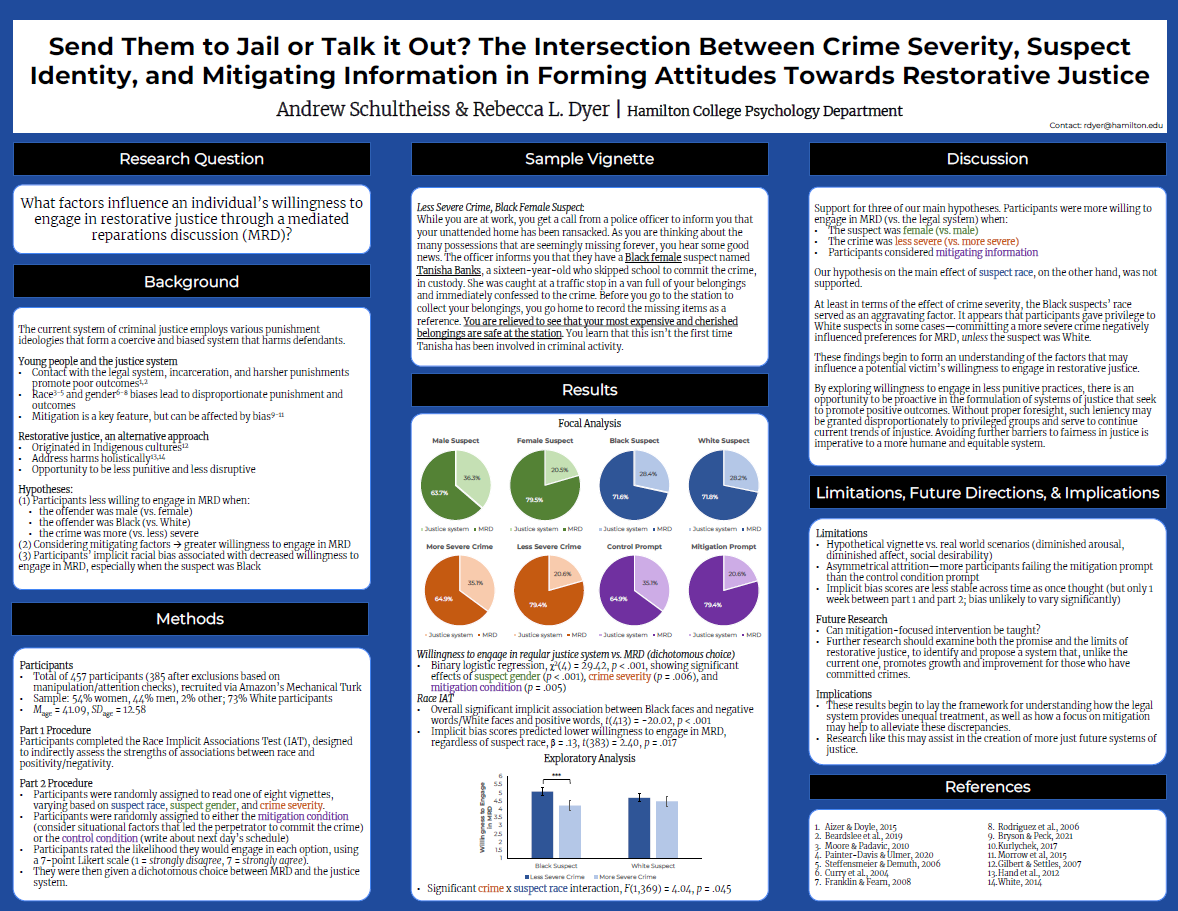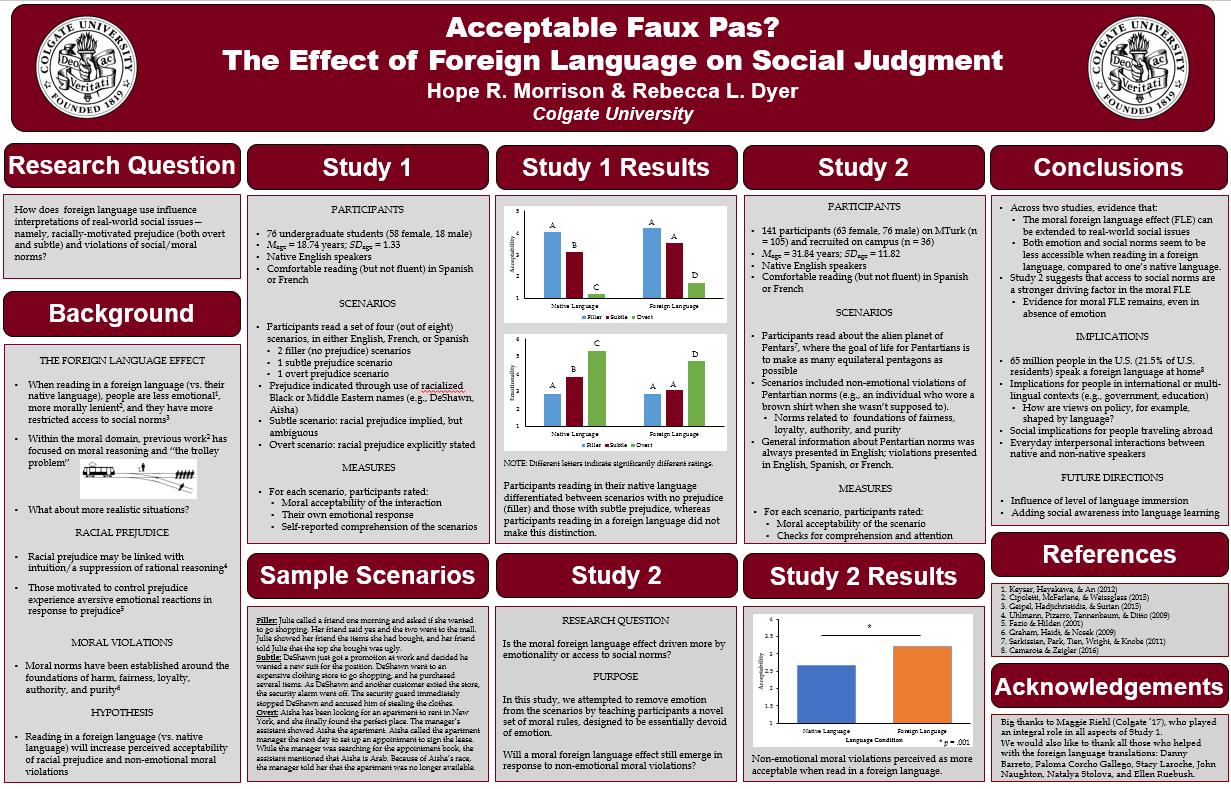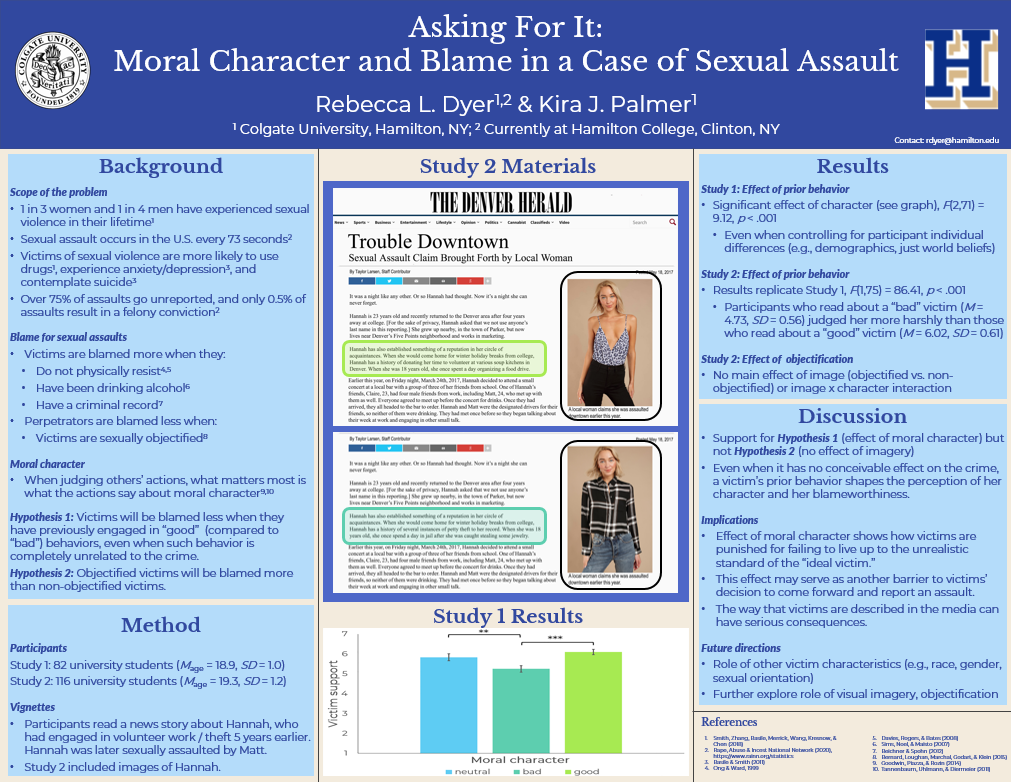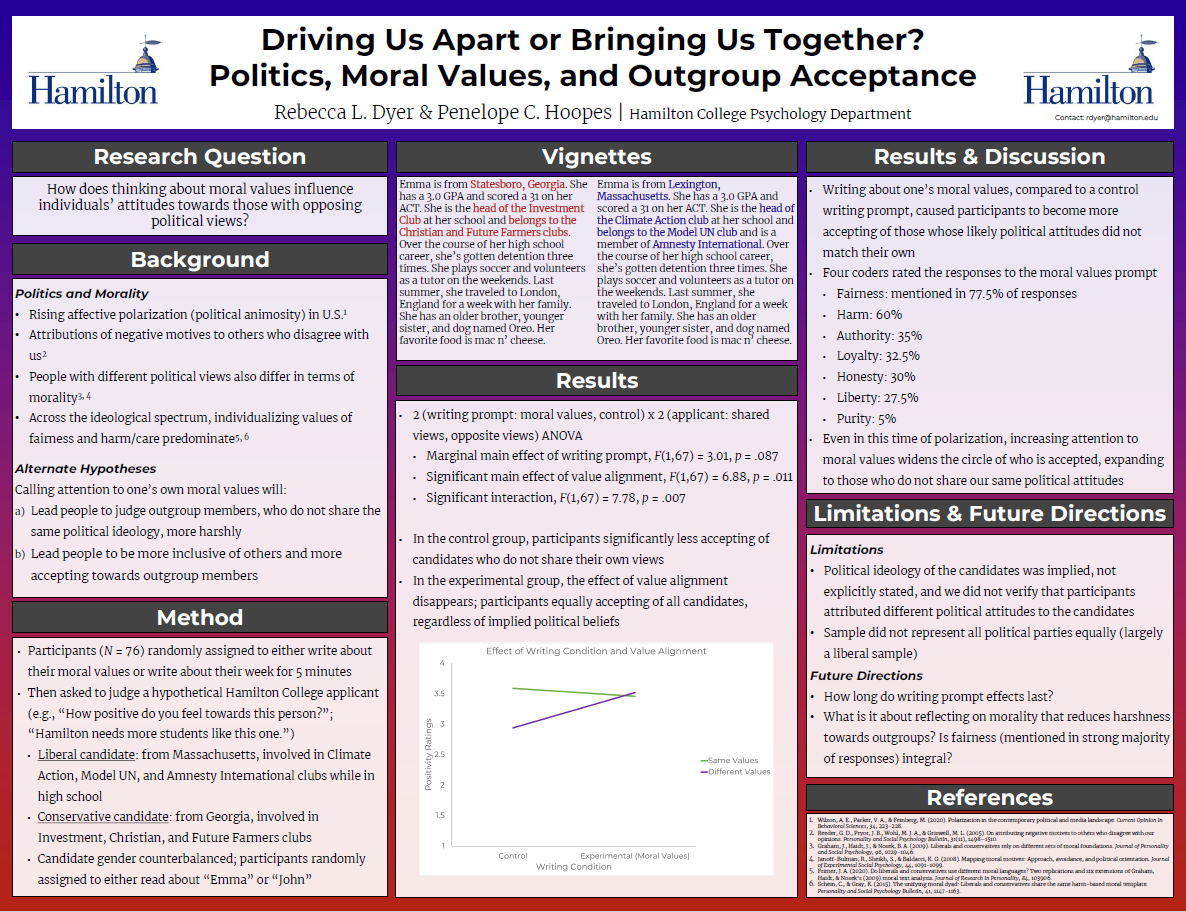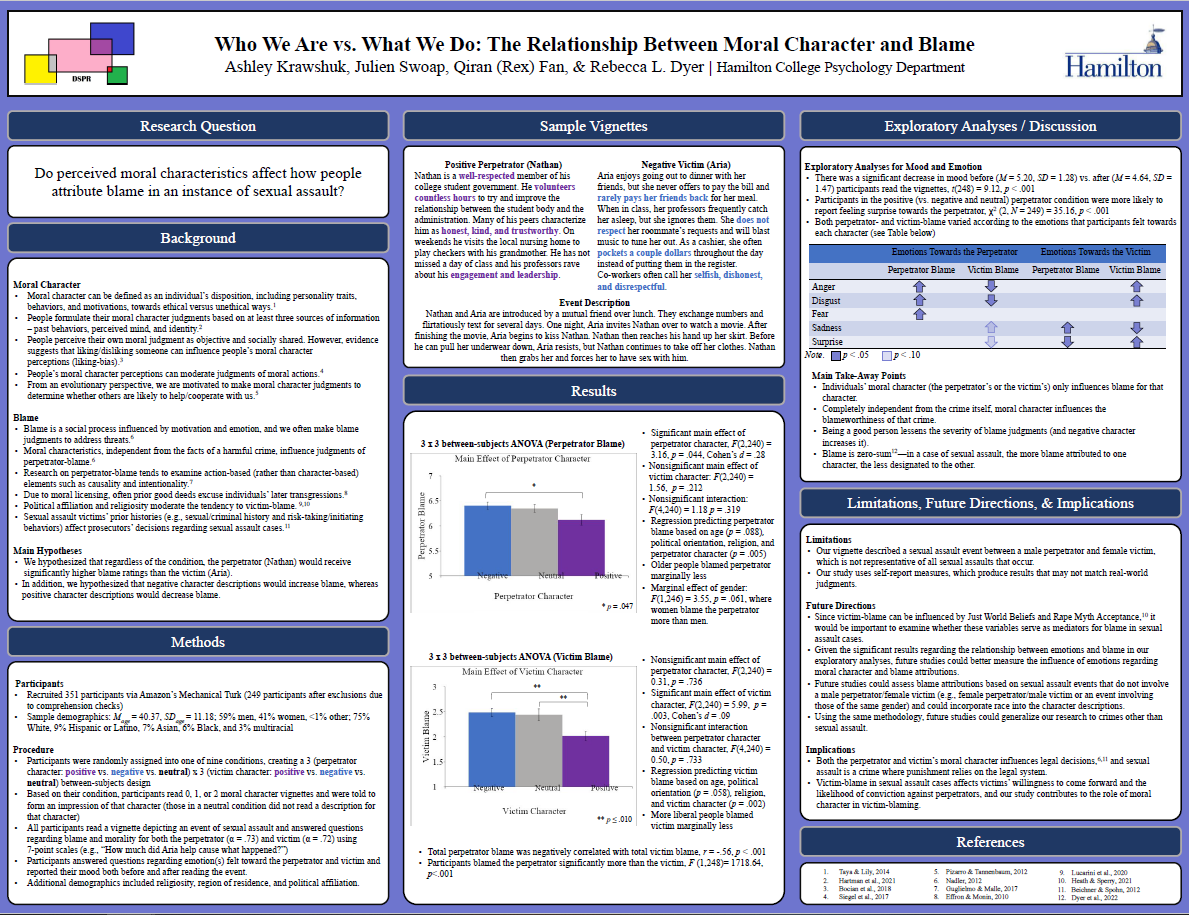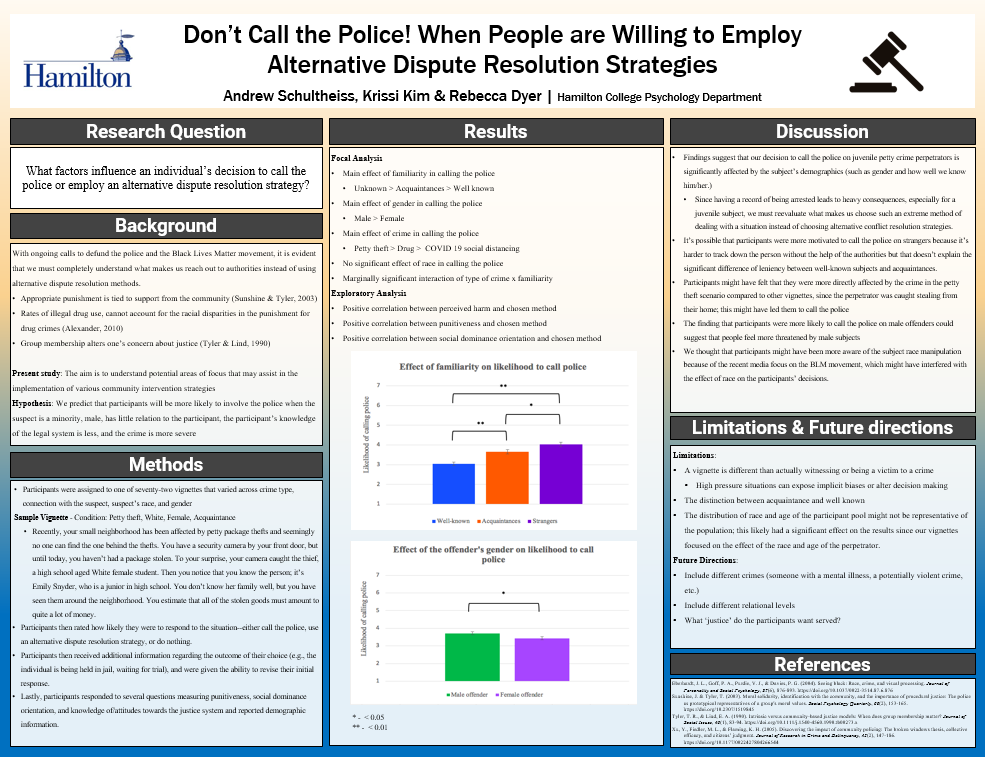Students' Work
Supervised Senior Thesis Research
Hamilton College
2023 — 2024
Investigating correlates of PTSD and depression after unwanted sexual contact: Victim-blame, self-blame, and rape myth acceptance
Is higher education liberal propaganda? The relationship between college major and political affiliation
“Put me in, coach!” How coaching style impacts performance outcomes
The influence of mental illness mitigating evidence in mock juror blame attribution and sentencing endorsements
Time flies when you’re with your pet? The role of pets in affective time estimation
2021 — 2022
Fraud and feelings: The effect of emotion on misinformation susceptibility
How the model minority myth hurts us all: Anti-Black attitudes and outgroup denigration
Psychopathy and physiological harm aversion
Putting the good in a good day’s work: Examining the relationship between happiness, sadness, and productivity
The tragedy of the (medical) commons: Prioritization and resource stewardship in the healthcare industry
Vicarious moral self-regulation in response to moral suasion and resistance to conformity pressures
2019 — 2020
Active engagement: Pretense play beyond childhood
But he is a good person: Perpetrator personality, moral judgments, and victim blaming
Burnt out but not beaten down: Promoting resilience in psychology graduate students
Driving us apart or bringing us together? Moral values, politics, and outgroup acceptance
In her shoes: The effect of perspective taking on reducing rape myth acceptance and the schema-driven processing of information about rape
2022 — 2023
A model like me: The effects of race-matched role models on student achievement
Body and mind: The cognitive, physiological, and social concepts related to exercise
Cross-cultural helping hands: The role of neural threat and reward systems in facilitating cooperation
Effects of social exclusion on just-world beliefs and victim blame, moderated by moral identity
Life history strategy, political ideology, and religiosity: The mediating role of moral intuition
The need for identity renegotiation after athletic retirement
2020 — 2021
I won’t buy it! Connecting consumer anger and moral licensing to boycott decisions
Send them to jail or talk it out? A look into willingness to engage in restorative justice
The effects of white guilt on punishment: A moral cleansing approach
Waste not, cheat not: The effects of resource availability on cheater detection
Why did she struggle? Gender salience and stereotypicality in the ultimate attribution error
Who gets the toilet paper? The effect of perceived risk on inequity aversion
Colgate University
2018 — 2019
Company vs. CEO: The effect of corporate social responsibility and CEO behavior on consumer attitudes
Is it okay for them to do that? Perceiving immoral behavior in other cultures
Surveying the experiences of students of color at primarily-white institutions
The idea victim: The role of moral character in perceptions of victim-blame
2016 — 2017
Acceptable faux pas: The effect of foreign language on social judgment
The effect of individual & social guilt on decision-making
The effect of stereotypical symbols on attitudes towards others
2017 — 2018
Effects of media modality on consumer and environmental behavior
How do you see me? A study on language and perceptions of others
The decoy effect and time pressure on consumer decision-making
The role of affiliation in the motivation to blame others
Supervised Summer Research
Summer 2022 (Hamilton College)
Who we are vs. what we do: The relationship between moral character and blame
Summer 2020 (Hamilton College)
Don’t call the police! When people are willing to employ alternative dispute resolution strategies
The influence of corporate and CEO reputation on consumer attitudes
Summer 2017 (Colgate University)
Temperature priming and the prisoner's dilemma
